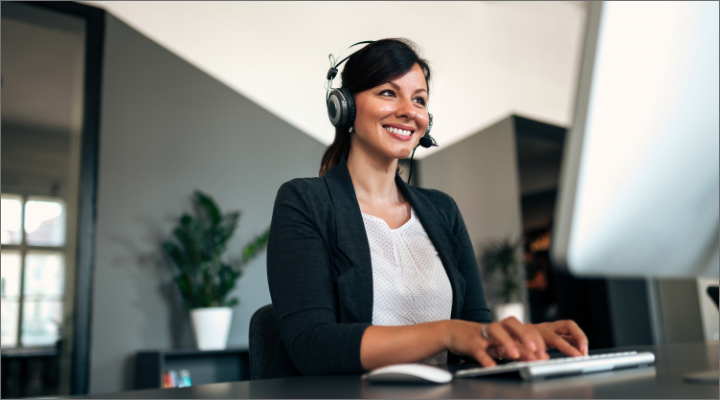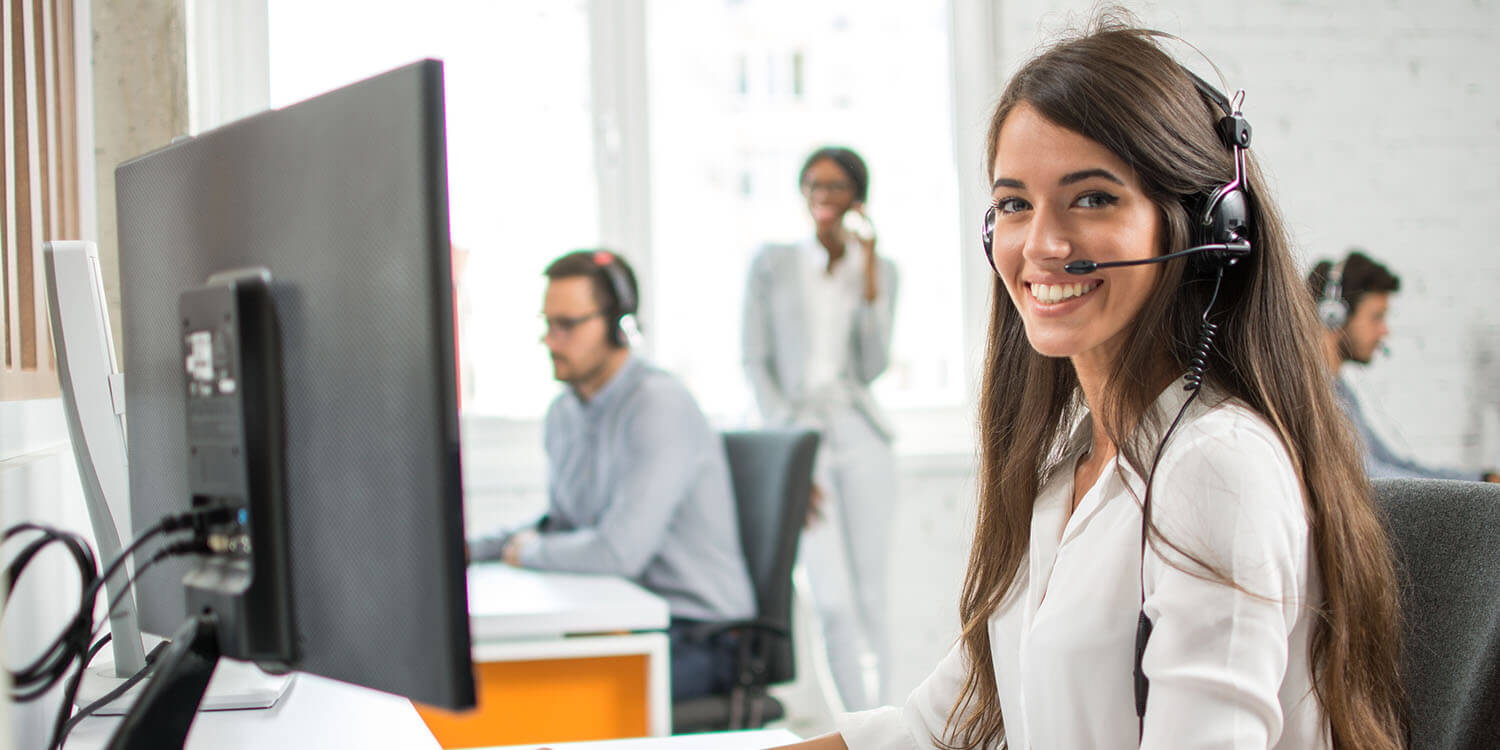All Categories
Featured
Table of Contents
- – What Is The Best Automated Answering Services -...
- – What Is The Best The Benefits Of Secretarial A...
- – Best Telephone Answering Service - Dexcomm - U...
- – What Is The Best Phone Answering - Serviced &...
- – What's The Best Virtual Receptionist & Phone ...
- – What's The Best Phone Answering Services - R...
What Is The Best Automated Answering Services - How Do They Work? Software?
This device and its followers were created by Sava Jacobson, an electrical engineer with a private consulting company. While early voice mail utilized magnetic tape technology, most modern devices uses solid state memory storage; some devices utilize a combination of both, with a solid-state circuit for the outbound message and a cassette for the inbound messages.
"toll conserving" below) (phone answering service). This works if the owner is screening calls and does not wish to consult with all callers. In any case after going, the calling party needs to be informed about the call having actually been addressed (in many cases this begins the charging), either by some remark of the operator, or by some greeting message of the little bit, or resolved to non-human callers (e.
This holds specifically for the Littles with digitally kept welcoming messages or for earlier devices (prior to the rise of microcassettes) with an unique unlimited loop tape, separate from a 2nd cassette, committed to recording. There have actually been answer-only devices with no recording abilities, where the welcoming message had to notify callers of a state of present unattainability, or e (virtual call answering service).
What Is The Best The Benefits Of Secretarial And Telephone Answering ... Manufacturer

about schedule hours. In taping TADs the greeting normally consists of an invitation to leave a message "after the beep". A voice mail that uses a microcassette to record messages On a dual-cassette answerphone, there is an outgoing cassette, which after the defined number of rings plays a pre-recorded message to the caller.

Single-cassette answering machines include the outgoing message at the start of the tape and inbound messages on the remaining space. They first play the announcement, then fast-forward to the next readily available area for recording, then record the caller's message. If there are many previous messages, fast-forwarding through them can cause a considerable hold-up.
This beep is often described in the welcoming message, asking for that the caller leave a message "after the beep". Little bits with digital storage for the tape-recorded messages do not show this hold-up, obviously. A little bit might use a push-button control center, where the answerphone owner can ring the house number and, by getting in a code on the remote telephone's keypad, can listen to recorded messages, or erase them, even when far from home.
Best Telephone Answering Service - Dexcomm - U.s. Based

Thereby the device increases the variety of rings after which it addresses the call (generally by two, leading to four rings), if no unread messages are presently saved, however responses after the set variety of rings (usually two) if there are unread messages. This allows the owner to learn whether there are messages waiting; if there are none, the owner can hang up the phone on the, e.
Some makers likewise permit themselves to be from another location activated, if they have actually been turned off, by calling and letting the phone ring a certain a great deal of times (generally 10-15). Some company desert calls already after a smaller sized variety of rings, making remote activation difficult. In the early days of TADs an unique transmitter for DTMF tones (dual-tone multi-frequency signalling) was regionally required for remote control, considering that the formerly utilized pulse dialling is not apt to convey proper signalling along an active connection, and the dual-tone multi-frequency signalling was implemented step-by-step.
Any incoming call is not identifiable with respect to these residential or commercial properties in advance of going "off hook" by the terminal equipment. So after going off hook the calls must be switched to proper gadgets and just the voice-type is immediately accessible to a human, but perhaps, however ought to be routed to a LITTLE (e.
What Is The Best Phone Answering - Serviced & Virtual Offices & Admin ... Available
What if I informed you that you do not need to in fact choose up your device when answering a client call? Someone else will. So practical, best? Answering phone calls does not need somebody to be on the other end of the line. Effective automated phone systems can do the trick simply as effectively as a live representative and often even much better.
An automatic answering service or interactive voice response system is a phone system that interacts with callers without a live person on the line - phone call answering. When companies use this innovation, consumers can get the response to a question about your service simply by utilizing interactions established on a pre-programmed call circulation.
Although live operators upgrade the customer care experience, many calls do not need human interaction. A simple taped message or directions on how a customer can recover a piece of information normally fixes a caller's instant requirement - business answering service. Automated answering services are a simple and reliable method to direct inbound calls to the best individual.
What's The Best Virtual Receptionist & Phone Answering Services Australia On The Market
Notification that when you call a company, either for assistance or product questions, the first thing you will hear is a pre-recorded voice welcoming and a series of choices like press 1 for client service, press 2 for queries, and so on. The pre-recorded alternatives branch out to other choices depending on the customer's selection.
The phone tree system assists direct callers to the best person or department using the keypad on a mobile phone. In some instances, callers can utilize their voices. It deserves noting that auto-attendant options aren't restricted to the ten numbers on a phone's keypad. When the caller has chosen their very first option, you can develop a multi-level auto-attendant that utilizes sub-menus to direct the caller to the ideal sort of help.
The caller does not need to interact with a person if the auto-attendant phone system can manage their concern. The automatic service can route callers to a worker if they reach a "dead end" and require support from a live agent. It is costly to employ an operator or executive assistant.
What's The Best Phone Answering Services - Ruby Receptionist Services On The Market
Automated answering services, on the other hand, are substantially cheaper and provide considerable expense savings at an average of $200-$420/month. Even if you do not have actually dedicated personnel to manage call routing and management, an automated answering service improves performance by allowing your group to focus on their strengths so they can more effectively invest their time on the phone.
A sales lead routed to customer care is a lost shot. If a consumer who has item questions reaches the incorrect department or gets insufficient responses from well-meaning employees who are less trained to manage a specific type of question, it can be a reason for disappointment and discontentment. An automated answering system can reduce the number of misrouted calls, thus helping your workers make much better use of their phone time while freeing up time in their calendar for other jobs.
With Automated Answering Systems, you can develop an individualized experience for both your staff and your callers. Make a recording of your main welcoming, and just upgrade it frequently to show what is going on in your organization. You can produce as many departments or menu options as you desire.
Table of Contents
- – What Is The Best Automated Answering Services -...
- – What Is The Best The Benefits Of Secretarial A...
- – Best Telephone Answering Service - Dexcomm - U...
- – What Is The Best Phone Answering - Serviced &...
- – What's The Best Virtual Receptionist & Phone ...
- – What's The Best Phone Answering Services - R...
Latest Posts
Virtual Phone Answering Near Me
Renowned After Hours Answering – Australia 3000
Sought-After Business Phone Answering Services
More
Latest Posts
Virtual Phone Answering Near Me
Renowned After Hours Answering – Australia 3000
Sought-After Business Phone Answering Services